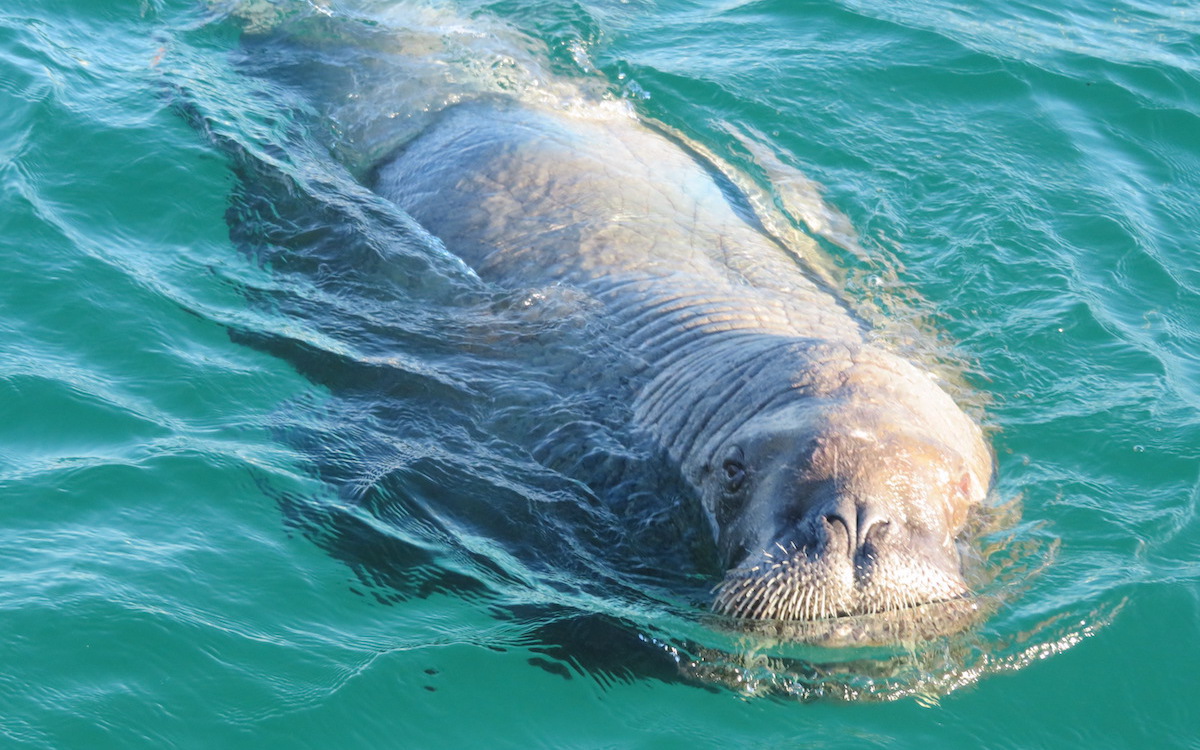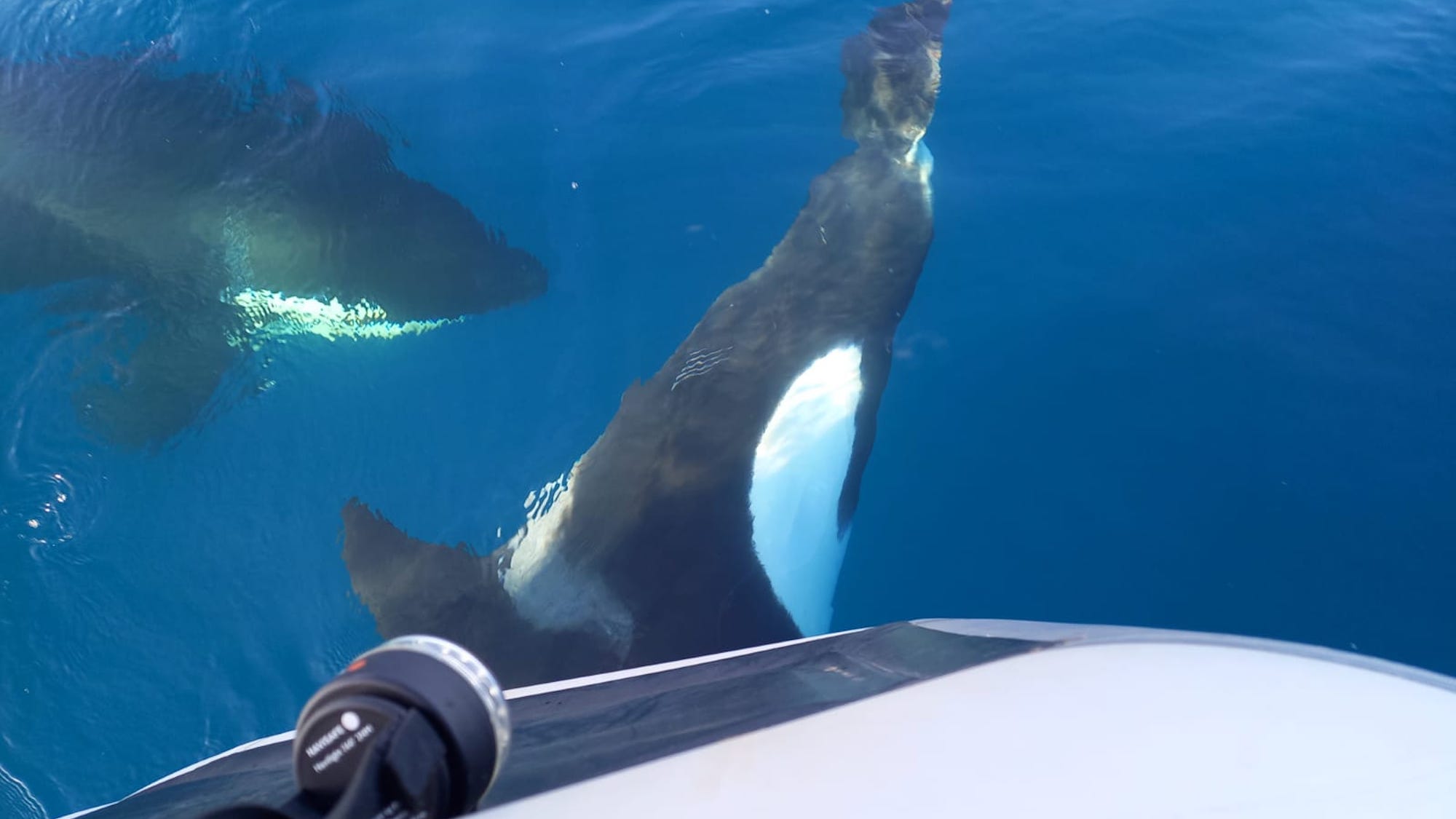Following the discovery of a rare smalltooth sand tiger shark in the Solent, what should sailors do if they see marine wildlife in distress?
Marine wildlife is one of the reasons why many of us enjoy time on the water.
But how can you help if you come across an animal in distress?
Last weekend, a rare smalltooth sand tiger shark was found dead on Lepe beach on the Solent.
The fish had earlier been spotted in the water, stuck on the seabed close to shore, by Alisha Openshaw.
She managed to assist the shark into deeper water, and it swum off.
But hours later it was found washed up at Lepe beach; later on the shark’s head and fin were removed.
Both The Shark Trust and the Zoological Society of London are asking for the head of the shark to be returned as it can help reveal details about the shark’s life.
Smalltooth sand tiger shark – which can grow around 4m in length – are considered rare; in the Northeast Atlantic, their range is the top of the Bay of Biscay.
Continues below…
Giant shark spine found in Bournemouth – species revealed
A giant shark spine found near Bournemouth, Dorset, on Tuesday has been identified as a basking shark. PBO editor Ali…
Why is Wally the Walrus climbing aboard boats? Fascinating facts about walruses
Wally the walrus stunned boat owners last week when he circled boats in the Isles of Scilly and tried to…
Orcas left us rudderless! Yacht couple tell of terrifying ordeal off Spain
Zoe Barlow shares her experience of losing a rudder during sustained attacks by orcas whilst sailing her Sun Odyssey 40…
UK seabirds: How to identify some of the most common breeds
Sailors have been watching seabirds for thousands of years. Early navigators in the Pacific used their knowledge of how far…
The species feed on small fish and squid, and is a globally vulnerable species, with numbers thought to be in decline.
“With small tooth sand tigers likely exceptionally rare visitors north of Biscay, this report is an exciting one,” said a spokesperson for The Shark Trust.
“And while efforts were made to secure the specimen for research, recent images show that the shark was butchered overnight with the head and tail removed. The head in particular holds the key to unlocking intricate details of the sharks life, even from before birth, so we’d welcome news of its whereabouts!
“Sighting records like this help shape our knowledge of species distributions. This sighting may have been a vagrant, but by maintaining records of occasional finds new patterns may start to emerge – making all records important.”

The British Divers Marine Life Rescue should be your first call when you see marine wildlife in distress. Their hotline number is: 01825 765546. Credit: Getty
The Zoological Society of London now has custody of the shark’s body and will be carrying out a post-mortem examination to try and understand more about the fish’s life and death.
The society’s Cetacean Stranding Investigation Programme recommends contacting the RSPCA or British Divers Marine Life Rescue if boaters spot marine wildlife in distress while out on the water.
The British Divers Marine Life Rescue carried out 3,138 callouts in 2022, and runs a hotline for reporting marine wildlife in trouble.
The number is 01825 765546.
The RSPCA can be contacted at www.rspca.org.uk.
Enjoyed reading What should sailors do if they see marine wildlife in distress?
A subscription to Practical Boat Owner magazine costs around 40% less than the cover price.
Print and digital editions are available through Magazines Direct – where you can also find the latest deals.
PBO is packed with information to help you get the most from boat ownership – whether sail or power.
-
-
-
- Take your DIY skills to the next level with trusted advice on boat maintenance and repairs
- Impartial in-depth gear reviews
- Practical cruising tips for making the most of your time afloat
-
-








